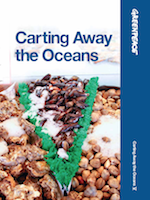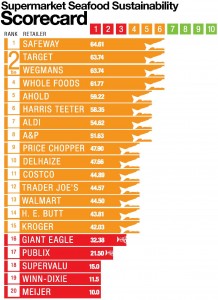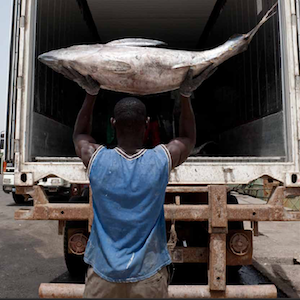 Despite the sustainable seafood movement gaining steam globally, the devastation wrought by global industrialized fishing continues on a massive scale. In spite of overwhelming evidence and strong warnings from the scientific community, we continue to plunder our seas.
Despite the sustainable seafood movement gaining steam globally, the devastation wrought by global industrialized fishing continues on a massive scale. In spite of overwhelming evidence and strong warnings from the scientific community, we continue to plunder our seas.
While sardines, mackerels, and other small, rapidly growing fish are becoming more common in supermarkets, most seafood merchants continue to focus on large, predatory fish such as cod, sharks, and tuna.
According to Daniel Pauly, project leader of the Sea Around Us Project at the Fisheries Centre at the University of British Columbia, it’s our overharvesting of those predatory fish that is causing huge runs of small fish like sardines to come back to British Columbia.
Predatory fish stock have dropped by as much as 90%. An enormous portion of the world’s total seafood catch, brought in as ”bycatch,” is tossed over board due to inefficient, indiscriminate fishing methods. The worst of the destructive fishing practices, bottom trawling, is responsible for 80% of all bycatch incurred globally.
 Greenpeace’s Carting Away the Oceans (CATO) project tracks and reports on progress being made in the seafood sector. Public support for conservation measures has pushed groceries of all sizes to offer sustainable seafood and eliminate the “unsustainable” alternatives.
Greenpeace’s Carting Away the Oceans (CATO) project tracks and reports on progress being made in the seafood sector. Public support for conservation measures has pushed groceries of all sizes to offer sustainable seafood and eliminate the “unsustainable” alternatives.
Supermarkets from all sectors can and must incorporate sustainability into their seafood operations as the industry evolves, and the top companies in Greenpeace’s report cross the three major grocery sectors; specialty stores – Whole Foods Market and Wegmans; big-box stores – Target; and conventional supermarkets – Safeway.
Unfortunately, there are still numerous seafood retailers that have yet to take any responsibility for the seafood they sell, or for the damage they are doing to our oceans.
Resources:
New Greenpeace report: Carting Away the Oceans, #5
5 Easy Pieces: The Impact of Fisheries on Marine Ecosystems (State of the World’s Oceans) by Daniel Pauly
Four Fish by Paul Greenberg

